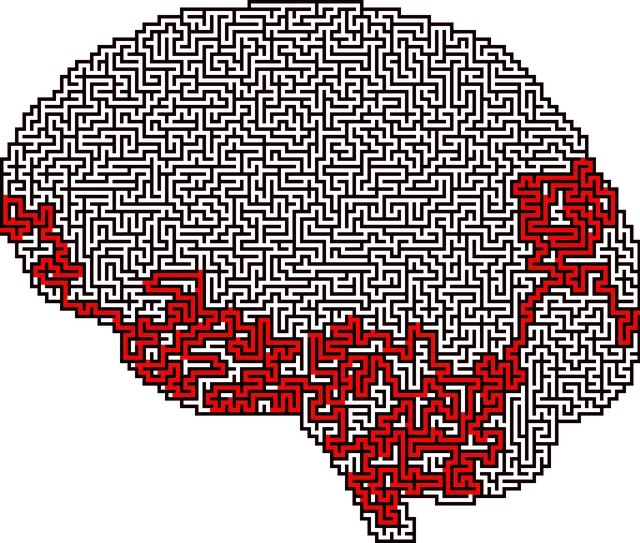The Highlands Ranch Kaiser Permanente Mental Health Access Center addresses mental wellness challenges in the area by offering tailored self-assessment tools, incorporating mindfulness and compassion cultivation practices. They provide accessible, evidence-based services, prioritizing user-friendliness, diversity, and cultural sensitivity to empower individuals in managing their mental health proactively. Their comprehensive approach includes quantitative impact assessment through pre-post comparisons and qualitative feedback integration for continually improving self-assessment platforms, contributing to better community mental wellness outcomes.
Mental wellness self-assessment tools play a pivotal role in identifying and addressing mental health concerns early. With increasing recognition of their importance, organizations like Kaiser Permanente’s Highlands Ranch Mental Health Access Center are at the forefront of development. This article explores the need for such tools, focusing on the center’s innovative approach, key components for effectiveness, digital platform implementation, and evaluation strategies. Learn how these elements contribute to improved mental health care accessibility.
- Understanding the Need for Self-Assessment Tools in Mental Health Care
- The Role of Kaiser Permanente's Highlands Ranch Mental Health Access Center
- Key Components of an Effective Mental Wellness Self-Assessment
- Developing and Implementing Digital Assessment Platforms
- Measuring Impact: Evaluation and Continuous Improvement Strategies
Understanding the Need for Self-Assessment Tools in Mental Health Care

In today’s fast-paced world, mental wellness is a cornerstone of overall health and well-being. However, accessing quality mental health care can be challenging for many individuals, especially in areas like Highlands Ranch, where limited resources might restrict access to specialized services. This is where self-assessment tools play a pivotal role. They democratize mental healthcare by enabling individuals to proactively monitor their mental wellness, identify potential issues early on, and seek appropriate support.
Highlands Ranch Kaiser Permanente Mental Health Access Center has recognized this need and implemented a Community Outreach Program that incorporates innovative strategies like Mindfulness Meditation and Compassion Cultivation Practices alongside traditional therapy models. By developing self-assessment tools tailored to these practices, the center aims to empower individuals to take charge of their mental wellness, fostering a more inclusive and accessible environment for care.
The Role of Kaiser Permanente's Highlands Ranch Mental Health Access Center

Kaiser Permanente’s Highlands Ranch Mental Health Access Center plays a pivotal role in promoting mental wellness within the community. This specialized center offers a comprehensive range of services, catering to diverse mental health needs. By providing accessible and affordable care, it empowers individuals to take charge of their mental well-being. The center’s strategic location in Highlands Ranch ensures easy accessibility for those seeking support.
Beyond treatment, the access center focuses on educating the community about mental health through various programs designed to enhance awareness. It incorporates cultural sensitivity in its practice, recognizing the unique needs and perspectives of different populations. Additionally, conflict resolution techniques are integrated into their approach, fostering a safe and supportive environment. These initiatives contribute to breaking down stigmas associated with mental healthcare while encouraging proactive mental health management.
Key Components of an Effective Mental Wellness Self-Assessment

An effective mental wellness self-assessment tool should encompass several key components to ensure it is comprehensive and beneficial. Firstly, it must be designed with user-friendliness in mind, allowing individuals to easily navigate and understand the questions. Clarity and simplicity are paramount; complex jargon or confusing language can deter users from completing the assessment accurately. The tool should also incorporate a wide range of questions covering various aspects of mental health, including emotional well-being, stress management, coping strategies, and personal resilience. This holistic approach ensures that individuals gain valuable insights into their mental wellness across different dimensions.
Moreover, integrating evidence-based practices and incorporating feedback from experts in the field, such as those at the Highlands Ranch Kaiser Permanente Mental Health Access Center, can enhance the tool’s effectiveness. The inclusion of mental health policy analysis and advocacy considerations ensures that the assessment stays current with best practices and societal changes. Additionally, emphasizing emotional healing processes and compassion cultivation practices can provide users with actionable steps towards self-improvement and foster a sense of personal growth.
Developing and Implementing Digital Assessment Platforms

Developing and implementing digital assessment platforms offers a promising approach to enhancing mental health services, particularly in accessible locations like the Highlands Ranch Kaiser Permanente Mental Health Access Center. These online tools can provide individuals with convenient access to self-assessment resources, enabling them to take charge of their emotional well-being. By utilizing technology, such as interactive questionnaires and personalized feedback mechanisms, digital platforms cater to a diverse range of users, from those seeking general mental health guidance to individuals looking for specific interventions like Anxiety Relief.
Designing Mental Health Education Programs that incorporate these digital assessment tools can facilitate Emotional Healing Processes by offering tailored recommendations based on individual needs. This approach not only improves accessibility but also encourages proactive engagement with mental wellness. The Highlands Ranch Kaiser Permanente center, through its innovative use of technology, sets an example for how digital assessment platforms can be integrated into modern healthcare practices, ultimately contributing to improved community mental health outcomes.
Measuring Impact: Evaluation and Continuous Improvement Strategies

Effective mental wellness self-assessment tools are not just created; they evolve through rigorous evaluation and continuous improvement strategies. At the Highlands Ranch Kaiser Permanente Mental Health Access Center, we’ve learned that measuring impact is a multi-faceted process. Initially, we assess the tool’s efficacy by comparing pre-post assessment scores of individuals using the tool, tracking changes in mental health symptoms and overall wellness. This quantitative data provides insights into the immediate effects and potential benefits of the self-assessment.
Complementing these measurements is qualitative feedback from users through surveys and interviews. We encourage individuals to share their experiences, perceptions of change, and suggestions for enhancement. Integrating this user input allows us to tailor the tool to diverse needs, ensuring it resonates with a broader audience. Combining both quantitative and qualitative approaches enables us to refine our mental wellness self-assessment tools, aligning them closely with evidence-based practices, current Mental Health Policy Analysis and Advocacy, and individual needs, ultimately contributing to Depression Prevention and fostering a more holistic understanding of mental wellness through the Mental Wellness Journaling Exercise Guidance.
The development of mental wellness self-assessment tools, as demonstrated by initiatives like those at the Highlands Ranch Kaiser Permanente Mental Health Access Center, is a game-changer in mental healthcare. By digitizing assessment platforms, we can reach a broader audience and provide accessible, user-friendly resources for individuals to monitor and improve their mental health. This approach, combined with continuous improvement strategies, ensures that tools remain effective and tailored to evolving needs. The success of such initiatives, like those at the Highlands Ranch Kaiser Permanente center, highlights the potential for digital assessments to revolutionize mental healthcare accessibility and impact.

